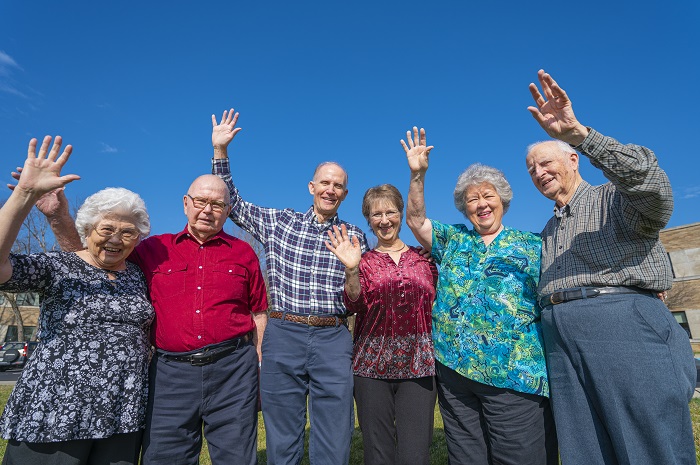Those who have lived long lives often swear by a particular habit or food that’s kept them healthy. But there are real secrets that may help you live a longer, healthier life - and they don’t involve drinking from the Fountain of Youth.
The Psychosomatic Medicine journal revealed the results of a 50-year study on aging in the July/August 2008 issue.
After studying more than 2,300 people, researchers concluded that physically active, emotionally stable, and conscientious people live longer. So maybe it’s time you asked yourself, “Am I active enough, relaxed about life, and happy?”
Use the list below for a quick check-in with your wellness and answer either yes or no to the following statements.
-
I exercise regularly, and my exercise routine is right for my age group.
-
I sleep well, never tossing and turning with worries.
-
I have regular checkups, and my doctor is familiar with my health.
-
I’m well informed about nutrition, and I take care to eat healthy, nutritious foods.
-
I’m active with a strong network of good friends.
-
I’m generally happy with my life.
Tips for a healthier life
If you checked several of the boxes above, you’re well on your way. Aging successfully means more than just being comfortable and safe. It means having self-esteem, confidence, fulfillment, and continued growth. How do you make that happen? Here are some ideas to get you started.
Get daily physical activity
You don’t need to be a marathon runner to see the benefits of exercise and physical activity. Just 30 minutes per day — minimum — helps you stave off heart disease, diabetes, cancer, mental illness, and more. For even better results, include strength training and add endurance, flexibility, and balance exercises to your workout.
Related: Tips for staying active and hydrated
Eat your way to better health
As you get older, your nutritional needs may change. Make sure you're including a variety of foods in your diet. The National Institute on Aging offer these suggestions for choosing healthy meals:
- Drink plenty of liquids. Avoid or limits ones with lots of added sugar or other ingredients, like soda.
- Make eating a social event. Even if you live alone or are social-distancing, you can set up a video call and encourage friends or family to join as you all eat together.
- Know what a healthy portion size is.
- Use herbs and spices to amp up the flavor of your meals without adding additional sugar or sodium.
Eating well is the foundation for your whole picture of wellness and can make you look and feel better in every aspect of your life.
Get the rest you need
While many older adults find it's harder to get enough sleep, it doesn't need to be that way.
Certain health issues or a medication you take might make it harder for you to fall asleep. If that's the case, talk to your doctor to see if there are other treatments or methods you can try.
If you're simply having trouble falling asleep, try one of these suggestions to help you get the rest you need:
- Follow a regular schedule of going to bed and getting up, even on weekends.
- Keep your bedroom at a cooler temperature and as quiet as possible.
- If ambient light bothers you at night, try wearing a sleep mask.
- Avoid napping later in the day so you feel more tired at bedtime.
- Don't eat, exercise, or drink alcohol too close to your bedtime.
- Try to avoid watching TV or using a computer or cell phone too close to bed.
Stay socially active, too
A network of friends and active involvement in a community are essential to your happiness. Plus, people who are well connected socially have much lower risks for diseases.
So sign up, jump in, and go with the flow! Spend time with family and friends, even far-away ones, with phone calls or Skype. And look for groups to join through your church or religious organization, the local library, or at a nearby senior center.
Consider where you live
CCRCs (Continuing Care Retirement Communities) are designed with active, engaged lifestyles in mind. So they typically offer a long list of fun and fulfilling activities, including:
-
Book clubs
-
Brain fitness exercises
- Concerts
-
Creative arts
- Day trips
Even if you don’t live in a CCRC, you can reap some of the benefits by fitting these types of activities into your daily schedule.
An attainable goal: living a longer, healthier life
Living a longer, healthier life is a goal we can all get behind. For support and assistance with your emotional and physical health, communities specifically designed for senior adults are a great option. Learn more about how to find a community that’s right for you.


